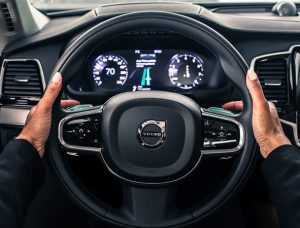
Volvo Cars will begin an ambitious autonomous driving (AD) trial next year in the UK to accelerate the introduction of a technology that promise to substantially reduce car accidents and traffic congestion.

The Swedish car maker, which launched similar test program in Australia last year, said the new trial will differentiate itself from other AD programmes by using real families driving AD cars on public roads.
Volvo president and chief executive Håkan Samuelsson said the test programme – dubbed “Drive Me London” – was part of the company’s commitment to developing autonomous driving system that would result in zero casualties in a new Volvo by 2020.
He said company will source its data from these every day users and use it to develop AD cars that are suitable for real world driving conditions, rather than the more unrealistic conditions found on test tracks.
“Autonomous driving represents a leap forward in car safety. The sooner AD cars are on the roads, the sooner lives will start being saved,” Mr Samuelsson said.
According to the press release by Volvo, Drive Me London will begin in early 2017 with a limited number of semi-autonomous driving cars and expand in 2018 to include up to 100 AD cars.
The technical data analysis and any professional test drivers needed as part of the trial will be provided by Thatcham Research.
The company’s chief executive, Mr Peter Shaw, pointed out that an independent research conducted by NHTSA has found that AD holds the potential to massively reduce the number of car accidents by eliminating driver errors which account for approximately 90% of all accidents.
“Vehicle manufacturers are predicting that highly autonomous vehicles, capable of allowing the driver to drop ‘out of the loop’ for certain sections of their journey, will be available from around 2021. Without doubt, crash frequency will also dramatically reduce,” Mr Shaw said.
“We’ve already seen this with the adoption of Autonomous Emergency Braking (AEB) on many new cars. Research in the US by NHTSA predicts that by 2035, as a result of autonomous and connected cars, crashes will be reduced by 80%. Additionally, if a crash unfortunately can’t be avoided, then the impact speed will also drop as a result of the system’s performance – reducing the severity of the crash.”

















